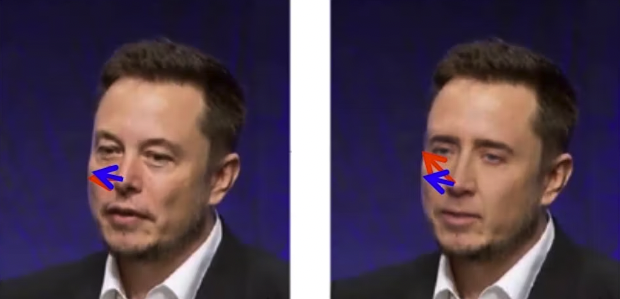Imagine Bruce Willis, Leonardo DiCaprio, or any other global superstar starring in your ads for an affordable price.
It sounds silly, but it’s not that far-fetched.
In fact, it’s already happening thanks to deepfake technology, the tech that allows you to digitally alter someone’s face so it resembles someone else. For example:
- Earlier this week a real estate ad of a kidnapped Elon Musk went viral.
- Last year, Bruce Willis consented to his image being used to promote MegaFon, a Russian telecom operator.
- Paperspace, a machine learning company, deepfaked Leonardo DiCaprio for an ad.
- People were discussing the concept of “reanimating” dead celebrities for advertising using deepfakes almost a decade ago.
We’ve reached the point where the tech is becoming more sophisticated and more affordable.
Naturally, this brings up questions of ethics and legality, but also the potential deepfake has for advertising.
Are Deepfake Celebrity Ads Legal?
Technically, Musk’s deepfake wasn’t consensual, while Bruce’s was. But deepfake technology is so recent that everything is still in limbo.
Sure, Musk could sue a small startup company, but the chances for that are slim, even if a company took a chance that skyrocketed their engagement.
So it’s probably more likely that new celebrity contracts may include specific terms to forbid non-consensual deepfaking, or something similar.
And on the other hand… It’s not only about the “mojo” your ads would have if they included some relevant celebrity or a thought leader. Imagine how much money you’d save.
Experts and advertisers predict deepfakes will become popular because they would help brands and agencies produce quality content quickly while cutting production costs by… a lot.
So don’t be surprised if you see more and more brands embracing deepfake advertising.
There’ll probably be an influx of tools that can make deepfaking accessible to you or your competitor, and probably agencies that will offer deepfaking as a service.
The question is, will deepfakes be regulated in the future?
For now, it’s hard to say.
But going by the dizzying rise of AI text-to-image generators in content and ads, deepfakes probably aren’t going anywhere.
It’s likely we’ll see more of them very soon.


